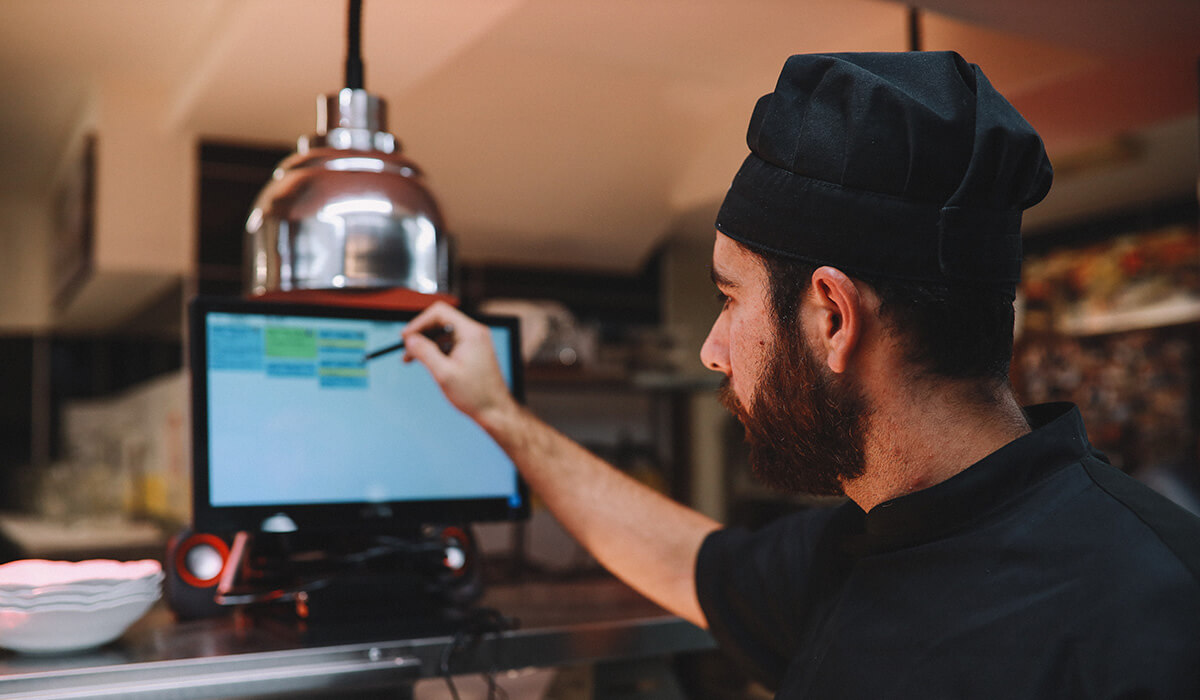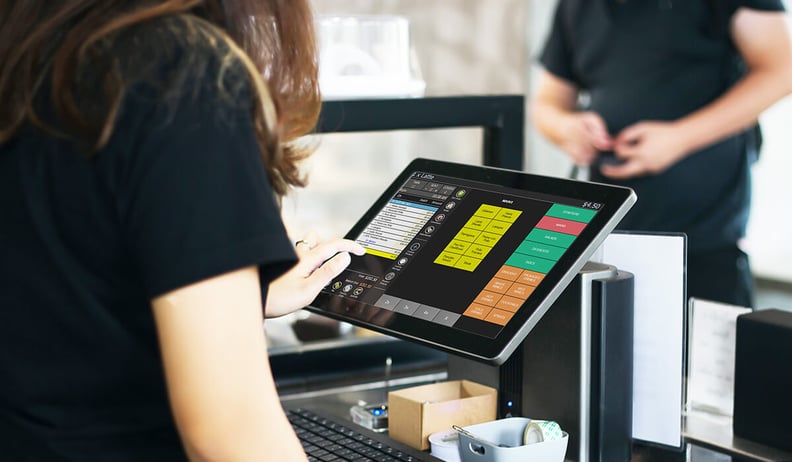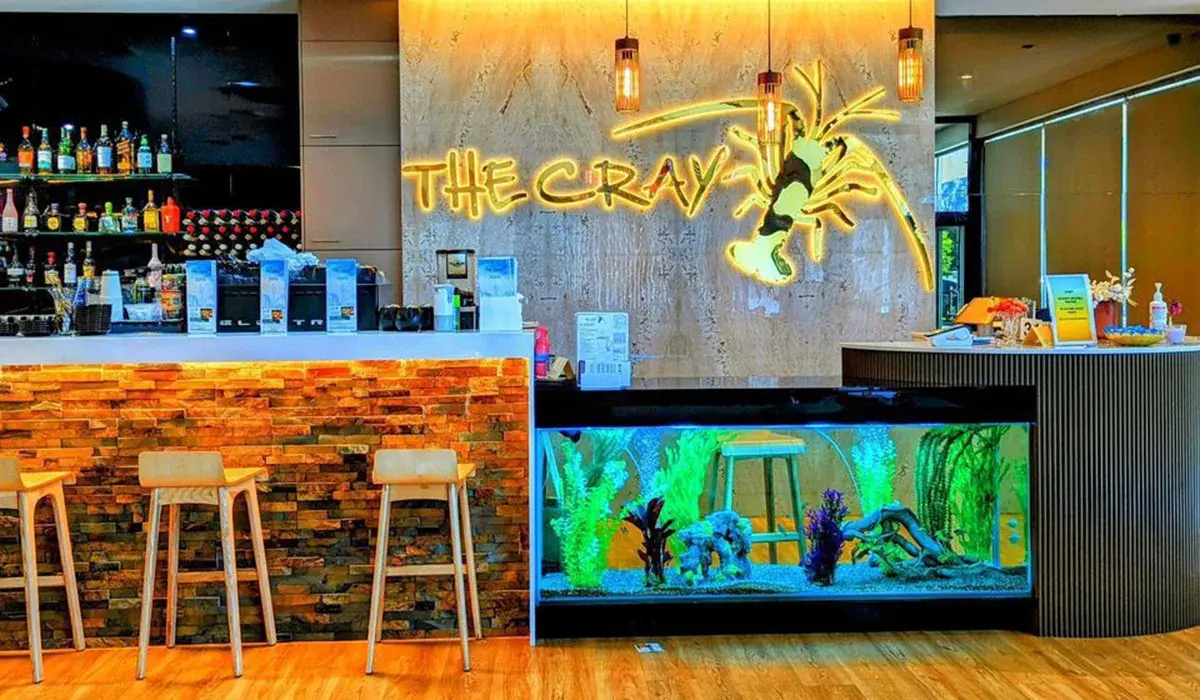

Posted on 07th March 2024
How POS System Integrations Boost Efficiency in Hospitality Businesses
Businesses must continually innovate to stay ahead of the curve. One way to achieve this is by implementing Point of Sale (POS) system integrations, which can significantly boost efficiency and streamline operations. POS system integrations connect software and apps with the POS to simplify hospitality businesse operations and provide a superior customer experience.
Here, we dive deeper into the benefits of POS system integrations, explore common integrations used in the Australian hospitality industry, and provide guidance on choosing the right POS system integrations for your business.
Benefits of POS System Integrations
Integrating software and apps with your Point of Sale (POS) system (aka your tech stack) can transform your hospitality business, offering numerous benefits that can enhance efficiency and simplify operations. This can include:
Improved Operations and Efficiency
Connecting multiple software solutions can streamline workflows and reduce manual tasks, freeing up time to focus on exceptional customer service and business growth. Integration also improves accuracy by eliminating human involvement in data transfer.
Increased Convenience and Customer Satisfaction
Integrating your POS system with online ordering platforms allows for real-time order processing, ensuring quick and accurate management of customer requests. This can lead to higher customer satisfaction and increased revenue.
Choose Your payments Provider
Having the freedom to choose your own EFTPOS payments provider gives you the power to negotiate the most competitive fees that work best for you. Avoiding all-in-one POS systems that lock you into their payment plans, allows you to select the provider that aligns with your specific requirements.
Improved Inventory and Stock Control
Accurate inventory levels are essential for hospitality businesses. POS integration with inventory management software can help track stock levels, reduce the risk of running out of items, minimise wastage, save money, and keep operations smooth.
Enhanced Reporting and Analytics
POS system integrations can offer valuable insights into your business's performance, empowering you to make informed decisions that drive growth. Real-time data access can help you identify trends, optimise pricing strategies, and improve profitability.
Greater Customer Engagement
Integrating your POS system with Reservations software can provide better insights into customers, leading to personalised experiences and increased loyalty, spend, and success for your business.
Integrating various software solutions with your Point of Sale (POS) system can transform your hospitality business, offering numerous benefits that can enhance efficiency and simplify operations.
Other Important Integrations
Online ordering and delivery, accounting, staff management, and membership and loyalty programs are also crucial integrations for the hospitality industry.
Common POS System Integrations Used in Australia

The Australian hospitality industry has embraced various POS system integrations to simplify operations and improve efficiency. This section will discuss some popular integrations commonly used in the country's hospitality sector, including:
In-Venue Ordering
With the rise of in-venue online ordering services, integrating POS systems with popular online ordering platforms like Me&u has become increasingly important. This integration allows hospitality businesses to seamlessly accept and manage orders, reducing errors and number of staff needed, and ensuring a smooth customer experience.
Stock and Inventory Management
As mentioned earlier, inventory management is crucial for hospitality businesses.
Integrating POS systems with inventory management software such as Open Pantry, Restoke or MarketMan helps businesses keep track of stock levels in real time, enabling them to make informed decisions about purchasing, stock rotation, and waste reduction.
Accounting
Integrating POS systems with accounting software such as Xero and MYOB can help streamline financial processes, saving time and reducing errors.
This integration automatically updates sales data, simplifying bookkeeping tasks and providing valuable financial insights.
Reservations and Customer Management
Gather valuable customer data and insights by integrating reservations software such as Now Book It, ResDiary or SevenRooms with your POS system.
This synergy has the potential to boost customer loyalty, increase spend per head, and contribute to the overall success of your hospitality business.
Employee Management & Scheduling
Integrating POS systems with employee management and scheduling software such as Deputy and Tanda can help businesses manage their workforce more efficiently.
This integration automatically updates employee work hours, simplifying the scheduling process and improving communication between staff members.
These types of software offer an overview of sales performance versus labour, helping monitor costs and create sales-driven staff schedules.
Delivery
These are just a few examples of the many POS system integrations commonly used in the Australian hospitality industry. Other popular integrations include online ordering and delivery services like Uber Eats and DoorDash, EFTPOS payment options such as Tyro or Linkly, membership and loyalty programs like 1receipt and GiftPro, and business intelligence tools such as Peiso and PerfectCheck.
Each integration offers unique benefits and can help businesses streamline operations, improve efficiency, and ultimately boost their bottom line.
How to Choose the Right POS System Integrations
Selecting the most suitable POS system integrations for your hospitality business is crucial for improving efficiency and streamlining operations. Here are some factors to consider and tips for choosing the right integrations for your business needs:
Identify your business requirements:
- Start by determining the specific needs of your business.
- Consider areas where your operations could be more efficient or face challenges.
- This will help you identify the integrations to address those issues and provide the most significant benefits.
Scalability:
- Choose integrations that can grow with your business.
- As your hospitality business expands, you may require additional functionality or more advanced features.
- Ensure that the integrations you select can accommodate future growth and adapt to the changing needs of your business.
Compatibility:
- Ensure your integrations are compatible with your POS system and other software applications.
- Check if the integration provider offers support for your current system and if they have a track record of successful integration with similar businesses.
User-friendliness:
- Select integrations that are user-friendly and easy to navigate.
- Your staff should be able to learn and use the system quickly to minimise disruption and ensure a smooth transition.
Customer support:
- Evaluate the level of customer support the integration provider provides.
- It's essential to have access to reliable support in case of technical issues or difficulties during the implementation process.
- Choose a provider with a reputation for responsive and helpful customer service.
Cost-effectiveness:
- While cost should not be the only factor in your decision-making process, finding integrations that balance functionality and affordability is essential.
- Consider the return on investment that each integration can provide and select options that deliver the most value for your business.
Reviews and testimonials:
- Research reviews and testimonials from other hospitality businesses implementing the integrations you are considering.
- This can provide valuable insights into the effectiveness and reliability of the integration, as well as the provider's customer support.
By carefully considering these factors and following these tips, you can select the right POS system integrations for your hospitality business, boosting efficiency and improving your operations.
Selecting the most suitable POS system integrations for your hospitality business is crucial for improving efficiency and simplifying operations.
Best Practices for Implementing POS System Integrations
Successfully implementing POS system integrations can significantly boost efficiency in your hospitality business. Here are some best practices and tips to ensure a smooth integration process:
Develop a clear plan:
- Establish a clear plan outlining each team member's objectives, timeline, and responsibilities before starting the integration process.
- Having a well-defined plan helps ensure a smoother transition and minimises the risk of potential issues arising during the implementation.
Communication and collaboration:
- Keep your team informed about the integration process, benefits, and potential challenges.
- Encourage open communication and collaboration between staff members and the integration provider to address concerns and ensure a successful implementation.
Staff training:
- Proper staff training is essential to maximise the benefits of your new POS system integrations.
- Allocate time and resources to educate your team on using the integrated system effectively.
- This will help prevent errors, increase user adoption, and enhance productivity.
Test the integration:
- Before fully implementing the integration, conduct thorough testing to identify any issues or areas for improvement.
- Testing ensures that the integration works as intended and minimizes the likelihood of disruptions to your operations once the system is live.
Monitor progress:
- After implementing the integration, continuously monitor its performance to ensure it's delivering the expected benefits.
- Track key performance indicators (KPIs) to measure the success of the integration and identify areas where further optimization might be needed.
Seek ongoing support:
- Choose an integration provider that offers ongoing support and updates.
- This ensures that your POS system remains up-to-date and compatible with any changes in your business or industry landscape.
Encourage feedback:
- Encourage feedback from your staff about the integration's performance, usability, and any areas that could be improved.
- Their insights can help you optimise the system and maximise its benefits for your business.
Takeaways
By following these best practices and tips, you can ensure a successful implementation of POS system integrations, ultimately boosting efficiency and streamlining operations within your hospitality business.
As the hospitality landscape evolves, businesses must adapt to the changing environment and stay competitive. By implementing POS system integrations, hospitality businesses can remain agile and responsive to customer demands and industry trends.
If you're seeking a high-quality, Australian-made and supported Point of Sale solution for your hospitality or retail business, look no further than Triniteq. Our innovative technologies are designed to simplify your operations, enhance your customer experience, and make you more money. Discover our range of products and services today.
If you're new to PowerEPOS, our new cloud-hybrid POS system, watch our Demo video, or Book a demo for more info.
Related articles
When Tejas Patel and his team at The Cray set out to open nine new restaurant locations ...
Pholklore is a vibrant, modern Vietnamese eatery known for blending traditional flavours ...
For a limited time, new Xero customers can access 90% off their Xero fees for 6 months, a ...




